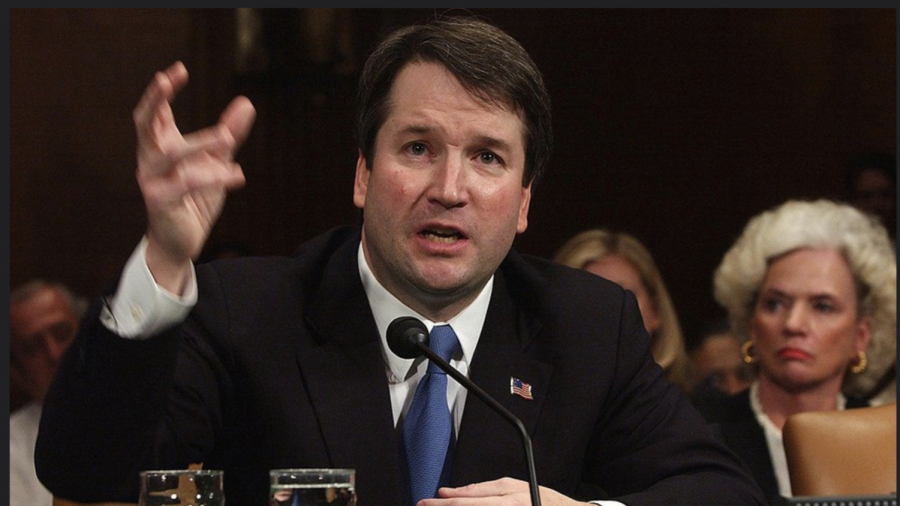New Supreme Court justice sworn in
Photo Dennis Cook/AP/REX/Shutterstock
Kavanaugh testifying in front of the Senate Judiciary Committee.
In the midst of mass protests on the steps of the Capitol building last Saturday, Oct. 6, and screams of “shame, shame, shame” coming from the public galleries, divided senators voted 50 to 48 to confirm Judge Brett Kavanaugh as the next justice of the U.S Supreme Court. With the introduction of Kavanaugh, many fear that the court will adopt a severely conservative standpoint on issues that usually remain bipartisan.
Kavanaugh’s nomination process was steeped in controversy, as he faced three separate sexual assault allegations. Dr. Christine Blasey Ford, Ms. Deborah Ramirez and Ms. Julie Swetnick all accused Kavanaugh of sexual assault dating back to his years in high school. Blasey provided an emotional testimony before Congress preceding the vote. “I have been accused of acting out of partisan political motives,” she said. “Those who say that do not know me. I am a fiercely independent person and I am no one’s pawn.”
Kavanaugh denied the allegations in both his testimony before Congress and in an op-ed in the Wall Street Journal. “My hearing testimony was forceful and passionate,” Kavanaugh wrote. “That is because I forcefully and passionately denied the allegation against me.”
President Trump and a majority of Republicans believed Kavanaugh faced an injustice during the hearing procedure. “On behalf of our nation, I want to apologize to Brett and the entire Kavanaugh family for the terrible pain and suffering you have been forced to endure,” said Trump during Kavanaugh’s swearing-in ceremony.
The FBI was prompted to investigate the allegations. Only one week was given for the investigation and some argue all avenues were not investigated to their fullest extents, as Dr. Ford and her corroborating witnesses were not interviewed. The senate proceeded to confirm Kavanaugh.
“I was especially outraged over the scope of the FBI probe and the loss of investigative principles when they were tasked with investigating sexual allegations,” said senior David Sherwood. Sherwood is worried about the repercussions facing the country now that Kavanaugh has the highest authority in the United States court system.
The vote was one of the slimmest margins in history for a judge to be confirmed, with Senators voting mostly along partisan lines.
Kavanaugh was sworn in just hours after the vote in a private ceremony at the Supreme Court. Chief Justice John Roberts led Kavanaugh in taking his oath as Justice Anthony Kennedy, the man Kavanaugh replaced, looked on. Outside the Supreme Court, protesters gathered in anguish over the confirmation of the new Supreme Court justice.
Justice Sonia Sotomayor voiced her concern about partisanship entering the court system. “We have to rise above partisanship in our personal relationships” stated Sotomayor, who was nominated in 2009 by former President Barack Obama. “We have to treat each other [with] respect and dignity and with a sense of amiability that the rest of the world doesn’t often share.”
The confirmation of Kavanaugh to the Supreme Court is predicted to have a major effect on the upcoming midterm elections.
Many Republicans believe that the win will mobilize sleepy voters to vote for the conservatives, while Democrats state that it is essential for everyone go out and vote in the upcoming elections. Senate minority leader Charles Schumer (D-NY) addressed the nation stating,“To so many millions who are outraged by what happened here… vote.”

